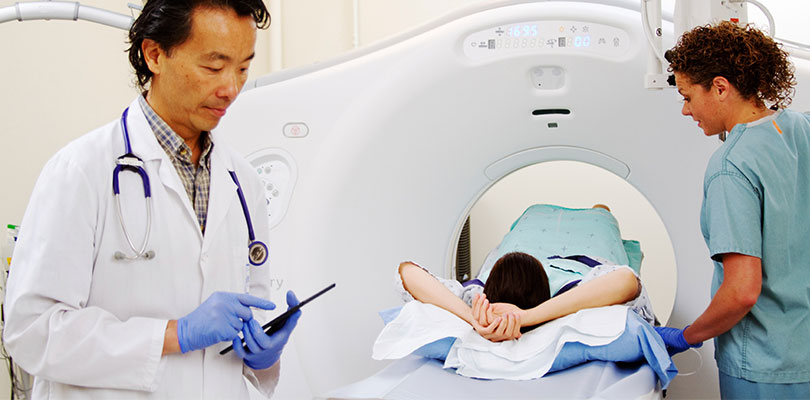Understanding the Link
Ulcerative colitis (UC) is a chronic disease that affects the colon (large intestine) and the rectum, causing inflammation and ulcerations of the innermost lining of the colon. The link between UC and an increased risk of colon cancer is well-documented, which underscores the importance of regular monitoring and early detection strategies. This article will explore the worst drinks for ulcerative colitis, the best foods and drinks for UC, what ulcerative colitis is, what causes it, the risks and the link between ulcerative colitis and cancer. We will also look at treatment options for UC, including Velsipity, which is used to treat moderate to severe ulcerative colitis.
Worst Drinks for Ulcerative Colitis
1. Milk
While not all UC sufferers are lactose intolerant, many do find that dairy products can trigger or worsen symptoms due to their lactose content, potentially leading to increased gas, bloating and diarrhea.
2. Alcohol
Alcohol consumption can irritate the gastrointestinal tract and disrupt the natural balance of gut bacteria, which can exacerbate UC flare-ups.
Dealing with cancer and weight loss, called cachexia, is a real issue for 50–85 percent of cancer sufferers. Read to learn how to manage it.
3. Soda and Carbonated Beverages
Sodas often contain sugar or artificial sweeteners, which can stimulate the bowel and lead to increased diarrhea in UC patients. Moreover, carbonation can trigger gas and bloating.
Best Foods and Drinks for Ulcerative Colitis
1. Probiotic Foods
Foods like yogurt, kefir and fermented vegetables contain probiotics, which can help restore the balance of healthy bacteria in the gut and may contribute to improved digestion and immune function.
2. Omega-3 Foods
Foods rich in omega-3 fatty acids, like flaxseeds, chia seeds and fatty fish (such as salmon and mackerel), exhibit anti-inflammatory properties that may be beneficial for UC management.
3. Low Fiber Fruits
Fruits low in fiber, such as bananas and cooked fruits without skin or seeds, are gentle on the digestive system and can provide essential vitamins and minerals.
4. Refined Grains
In contrast to whole grains high in fiber, refined grains like white rice and sourdough bread are easier on the gut and less likely to cause distress.
5. Lean Protein
Easily digestible proteins like fish, chicken, tofu and eggs provide essential nutrients and are less likely to aggravate symptoms.
6. Cooked Vegetables
Cooking vegetables makes them easier to digest, reducing the risk of aggravating UC symptoms. However, avoid those with seeds or skin.
7. Water
Hydration is paramount for UC patients, especially since diarrhea can lead to fluid loss. Water is the best option to stay hydrated without irritating the colon.
Understanding Ulcerative Colitis
Ulcerative colitis is an inflammatory bowel disease (IBD) primarily affecting the colon and rectum. It is characterized by periods of exacerbation and remission. The precise cause is still unknown, but it is thought to result from an abnormal immune response that mistakenly targets the intestinal lining, combined with genetic and environmental factors.
Risk Factors
Factors that may increase the likelihood of developing UC include age, genetics, a family history of IBD, environmental factors and possibly the use of certain medications like nonsteroidal anti-inflammatory drugs (NSAIDs). Additionally, those who smoke or have a Westernized diet are also considered to be at a higher risk.
Signs of Ulcerative Colitis
Here are some common symptoms of UC.
- Diarrhea: A common symptom, often with blood or pus due to inflammation and ulcers in the colon.
- Increased bowel movements: Patients may experience increased frequency in bowel movements.
- Urgent bowel movements: An uncontrollable need to defecate may occur.
- Tenesmus: A sensation of incomplete evacuation.
- Abdominal cramping: Cramps and pain are common due to intestinal inflammation.
- Blood in stool: Bleeding ulcers can cause visible blood in the stool.
- Fatigue: Chronic inflammation often leads to fatigue and exhaustion.
Link Between Ulcerative Colitis and Colon Cancer
Individuals with UC are at a heightened risk for developing colon cancer compared to the general population due to the inflammation that occurs throughout the bowel. The risk increases the longer one has UC, especially if the entire colon is involved or if there is a family history of colon cancer. Regular screenings and close monitoring of the colon's condition are crucial for early detection and prevention.
Treatment Options for Ulcerative Colitis
Treatment of UC aims to reduce symptoms and provide a good quality of life. Here are some common treatment methods.
- Aminosalicylates: These medications help reduce inflammation and are often used for mild to moderate symptoms.
- Corticosteroids: Corticosteroids can suppress the immune system and reduce inflammation for more severe flare-ups.
- Immunosuppressants: These drugs target the immune response that causes inflammation.
- Biologics: These are newer medications made from living organisms that target specific parts of the immune system.
- Janus Kinase (JAK) Inhibitors: These small molecules can interfere with pathways that signal inflammation.
- Velsipity: Velsipity (etrasimod) is used for the treatment of adults with moderate to severe ulcerative colitis. It functions as a modulator of S1P receptors (selective sphingosine-1-phosphate), aiding in the regulation of inflammation within the large intestine.
- Surgery: In severe cases unresponsive to medication, surgical removal of the colon may be necessary.
Ulcerative Colitis, Colon Cancer and Your Health
It's crucial to work closely with a gastroenterologist to create a tailored treatment plan, which may include a combination of medical therapies and lifestyle adjustments. Regular check-ups and colonoscopies are imperative for monitoring the condition's progression and screening for early signs of colon cancer. With proper management, individuals with UC can often lead full, active lives.







